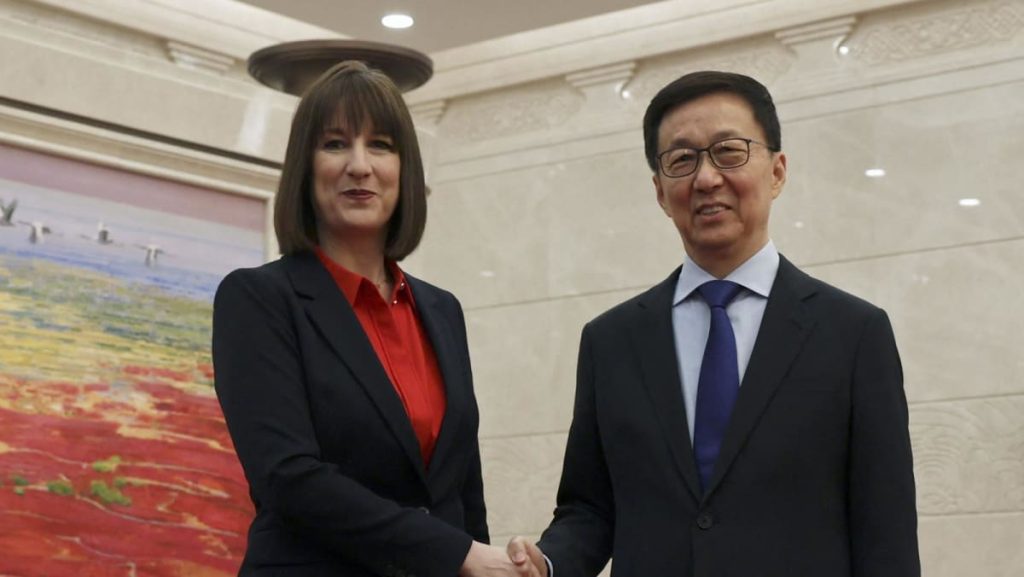British Chancellor of the Exchequer Rachel Reeves embarked on a high-stakes visit to China, aiming to revitalize economic dialogue and explore avenues for cooperation amidst a backdrop of escalating UK borrowing costs and complex geopolitical dynamics. This visit, the most senior by a British government official in seven years, underscores the UK’s recognition of China’s crucial role in the global economy and its desire to forge a pragmatic relationship despite existing tensions. Reeves’ trip comes at a time of acute financial pressure for the UK government, with bond yields reaching a 17-year high, impacting the affordability of government operations and debt repayment. While acknowledging the market volatility, Reeves emphasized the unwavering nature of her fiscal plans, reiterating the government’s commitment to growth as its primary objective. Her visit to China, she stated, was directly aligned with this goal, aiming to unlock concrete benefits for British businesses engaged in international trade and export.
Reeves’ trip, however, has not been without controversy. Facing calls from the opposition to address the domestic financial crisis, her decision to proceed with the long-planned visit reflects the perceived importance of engaging with China. The visit’s agenda includes high-level meetings with Chinese counterparts, including Finance Minister He Lifeng, with the aim of restarting the annual trade and investment dialogue. Discussions are expected to encompass a broad spectrum of economic and financial issues, potentially including macroeconomic policies, global trade and investment dynamics, industrial cooperation, and financial market development and regulation. This engagement reflects a mutual desire to strengthen economic and financial ties, viewed as beneficial to both nations and potentially contributing stability and momentum to the global economy. The presence of the Bank of England Governor and the CEO of the UK’s Financial Conduct Authority further underscores the significance of the visit and the depth of intended financial cooperation.
Beyond purely economic considerations, the visit also carries a significant diplomatic dimension. Reeves’ willingness to raise human rights concerns, a key point of contention in UK-China relations, signals a continued commitment to address sensitive issues despite the emphasis on economic engagement. This delicate balancing act reflects the UK government’s nuanced approach, seeking to compartmentalize cooperation on areas of mutual interest while maintaining a critical stance on human rights and other areas of disagreement. The backdrop of this visit includes recent efforts by Prime Minister Keir Starmer to reset the UK’s relationship with China following a period of heightened tension under previous Conservative governments. Starmer’s meeting with President Xi Jinping at the G20 summit in 2022, the first such interaction in years, marked a tentative step towards rebuilding trust and opening channels of communication.
However, the path to a stable and mutually beneficial relationship remains fraught with challenges. Accusations of espionage involving a Chinese businessman with alleged links to the British royal family, dismissed by Beijing as “preposterous,” highlight the underlying mistrust and the potential for unforeseen incidents to derail progress. The UK government’s approach, termed “progressive realism,” seeks to navigate this complex landscape by engaging pragmatically with China where feasible, such as on trade, climate change, global health, and AI regulation. Simultaneously, the UK aims to challenge China on issues of concern, including human rights abuses, support for Russia’s war in Ukraine, and the crackdown on pro-democracy activists in Hong Kong. This dual-track approach underscores the UK’s recognition of the need for both cooperation and confrontation in its dealings with China.
Reeves’ visit to China, therefore, represents a crucial juncture in the evolving relationship between the two nations. It signifies a concerted effort to revitalize economic ties and explore areas of mutual benefit, while simultaneously navigating sensitive political and human rights issues. The success of this endeavor will depend on the ability of both sides to engage constructively and address concerns openly, balancing the pursuit of economic cooperation with the imperative of upholding fundamental values and principles. The outcomes of this visit will likely have far-reaching implications for the future trajectory of UK-China relations, shaping the dynamics of engagement and cooperation for years to come.
In conclusion, Reeves’ visit to China exemplifies the complexities and opportunities inherent in navigating the modern geopolitical landscape. It underscores the growing interconnectedness of the global economy and the need for even nations with differing political systems and values to find common ground on issues of mutual interest. The visit also highlights the challenges of balancing economic pragmatism with the imperative to uphold human rights and democratic principles. The UK’s “progressive realism” approach, while potentially fraught with difficulties, represents a considered attempt to navigate this intricate terrain. The ultimate success of this strategy, and the long-term trajectory of UK-China relations, will depend on the willingness of both sides to engage in open dialogue, address concerns frankly, and build a relationship based on mutual respect and a shared commitment to global stability and prosperity.

